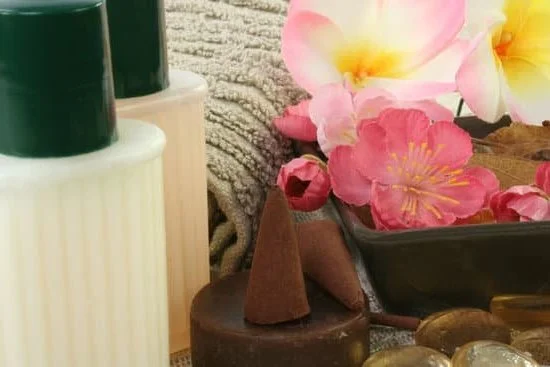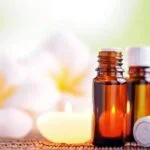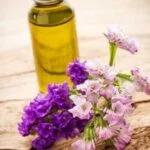Anxiety is a prevalent mental health condition that affects millions worldwide. It can create overwhelming feelings of fear, worry, and unease, often interfering with daily activities and overall well-being. While traditional treatments like therapy and medication are commonly utilized, there is a growing interest in alternative therapies for anxiety.
Aromatherapy, an ancient practice that harnesses the power of essential oils to promote healing and relaxation, has gained attention as a potential solution. In this article, we will explore the concept of anxiety and the search for alternative therapies, specifically focusing on whether aromatherapy can help alleviate anxiety symptoms.
Anxiety is characterized by persistent feelings of tension, apprehension, and excessive worry. It can manifest emotionally through panic attacks or physically through symptoms like rapid heartbeat and shortness of breath. The impact of anxiety on mental health cannot be understated; it can significantly impair one’s quality of life if left untreated or unmanaged. As a result, many individuals seek relief beyond traditional methods and turn to more natural approaches in their quest for optimal mental well-being.
Alternative therapies have garnered significant attention due to their potential effectiveness in managing anxiety without the side effects often associated with medications. One such therapy gaining popularity is aromatherapy.
Originating from ancient civilizations such as Egypt and India, aromatherapy utilizes plant extracts known as essential oils to promote holistic healing. These aromatic compounds are derived from various parts of plants like leaves, flowers, bark, or roots and are believed to possess therapeutic properties that can positively influence both mind and body.
By utilizing the power of scent through inhalation or skin absorption, aromatherapy aims to stimulate certain areas in the brain linked to emotions and mood regulation. Scientific research has indicated that specific essential oils used in aromatherapy may help regulate anxiety levels by activating neurotransmitters responsible for inducing relaxation and reducing stress responses.
Moreover, certain scents have shown promising effects on influencing brain chemistry and promoting a sense of calm and tranquility. With this growing interest and potential benefits, it is worth exploring whether aromatherapy can truly be instrumental in alleviating anxiety symptoms and improving overall well-being.
Understanding Aromatherapy
Aromatherapy is a practice that has been used for centuries to promote physical and mental well-being. It involves the use of essential oils derived from plants to enhance relaxation, reduce stress, and alleviate anxiety. Understanding the basics and benefits of aromatherapy can help individuals make informed decisions about incorporating this natural therapy into their anxiety management routine.
Aromatherapy can positively affect the mind and body through both inhalation and topical application of essential oils. When inhaled, the molecules in the oils stimulate the olfactory system, which is connected to the brain’s limbic system – commonly known as the “emotional center” of the brain. This connection plays a crucial role in regulating emotions, reducing stress, and promoting relaxation.
Essential oils used in aromatherapy for anxiety relief include lavender, chamomile, bergamot, and rose. Lavender oil is widely recognized for its calming properties and ability to promote sleep. Chamomile oil is known for its soothing effects on the nervous system and can help reduce feelings of tension.
Bergamot oil has uplifting qualities and may aid in alleviating symptoms of depression associated with anxiety. Lastly, rose oil is believed to have anxiety-reducing properties due to its sweet scent and potential ability to increase dopamine levels in the brain.
When using essential oils for anxiety relief, there are several methods of application: diffusion, topical application (such as massage or compress), and inhalation. Diffusing essential oils through a diffuser or by adding them to bathwater creates a relaxing ambiance that promotes calmness.
Topical application involves blending essential oils with carrier oils (such as coconut or jojoba oil) for massage or targeted application on pulse points or areas of tension. Inhalation can be done by simply inhaling directly from an open bottle of essential oil or by using a diffuser necklace.
Understanding these basics of aromatherapy will enable individuals to confidently explore this natural therapy as a complementary approach to managing anxiety. By incorporating essential oils into their daily routines, individuals can experience the benefits of aromatherapy in promoting relaxation and reducing stress levels.
Science Behind Aromatherapy’s Effects on Anxiety
Aromatherapy has gained popularity as a natural and holistic approach to managing anxiety. But what is the science behind its effectiveness? Scientific research and studies support the positive effects of aromatherapy on anxiety, shedding light on how certain essential oils can regulate emotions and reduce anxiety symptoms.
One key aspect of aromatherapy’s effectiveness lies in the role of scent in affecting brain chemistry. When we inhale essential oils, the molecules stimulate the olfactory system, which is directly connected to the limbic system in our brain. The limbic system plays a crucial role in regulating mood, emotions, and memory formation. This direct connection allows certain scents to have a powerful impact on our mental and emotional well-being.
Research has shown that specific essential oils have calming properties that can alleviate anxiety symptoms. For example, lavender oil has been extensively studied for its relaxing effects and ability to increase feelings of calmness. A study published in the Journal of Alternative and Complementary Medicine found that inhaling lavender oil reduced feelings of anxiety and improved overall mood in participants.
Another essential oil commonly used for anxiety relief is chamomile oil. Chamomile contains compounds that act as relaxants, promoting relaxation both mentally and physically. A study published in the journal Life Sciences found that chamomile essential oil significantly reduced anxiety-like behavior in animal models.
Bergamot oil is another essential oil known for its anxiety-relieving properties. It has been shown to reduce stress levels by decreasing cortisol levels, which are often elevated during times of stress. In a study conducted at the Taipei Medical University, inhalation of bergamot oil significantly reduced physiological signs of stress among healthy volunteers.
Rose oil is another popular choice for its calming effects on the mind and body. Research suggests that rose oil can help reduce blood pressure and heart rate, both of which tend to increase during anxious episodes. In a study published in Complementary Therapies in Clinical Practice, inhalation of rose oil was found to significantly decrease anxiety levels in patients undergoing cardiac catheterization procedures.
When using essential oils for anxiety relief, it is important to remember that everyone’s experience may vary. It is recommended to experiment with different oils and find the ones that work best for individual needs. Additionally, it is crucial to use high-quality essential oils and follow proper dilution and usage guidelines to avoid any potential adverse effects.
In the next section, we will explore the top essential oils for anxiety relief in more detail and provide tips on how to properly use them for optimal results.
Top Essential Oils for Anxiety Relief
When it comes to using aromatherapy for anxiety relief, certain essential oils have been found to be particularly effective in promoting relaxation and reducing symptoms of anxiety. These essential oils can be used in various ways such as through diffusing, topical application, or inhalation. Let’s take a closer look at some of the top essential oils for anxiety relief:
- Lavender: Known for its calming properties, lavender essential oil has been widely studied for its effects on anxiety. Research has shown that inhaling lavender essential oil can help reduce feelings of anxiety and promote a sense of calmness. It is also known to improve sleep quality and alleviate insomnia, which often goes hand in hand with anxiety.
- Chamomile: Chamomile essential oil is another popular choice for anxiety relief. It contains compounds that have been found to reduce stress and promote relaxation by acting on the central nervous system. The soothing scent of chamomile can help ease tension and promote better emotional well-being.
- Bergamot: Derived from the citrus fruit, bergamot essential oil is known for its uplifting aroma and mood-regulating properties. Its pleasant scent has been found to reduce feelings of stress and anxiety, while also boosting mood and promoting positivity.
- Rose: Rose essential oil is often associated with feelings of love and romance, but it also has powerful calming effects on the mind and body. Inhaling rose essential oil has been shown to decrease levels of stress hormones, providing relief from anxiety symptoms.
Using these essential oils for anxiety relief can be done in several ways. For instance, lavender or chamomile oil can be added to a warm bath or used in a massage oil blend for a calming effect on both the mind and body. Diffusing bergamot or rose oil into the air can create a soothing atmosphere that promotes relaxation.
It’s important to note that while essential oils can be beneficial for anxiety relief, it’s essential to use them safely and appropriately. Trying a small patch test or diluting the oils before topical application can help prevent skin irritation or allergies. Additionally, consulting with a healthcare professional before starting aromatherapy is advised, especially for individuals with underlying medical conditions or those taking medications.
Overall, incorporating these top essential oils into your aromatherapy routine can provide a natural and holistic approach to managing anxiety. Experimenting with different oils and techniques can help you discover what works best for you in promoting relaxation and overall well-being.
Aromatherapy Techniques and Practices for Anxiety Management
Aromatherapy offers a range of techniques and practices that can be used effectively in the management of anxiety. By incorporating these techniques into your daily routine, you can experience the calming and soothing effects of essential oils. Here are some popular aromatherapy techniques for anxiety management:
- Massage: Aromatherapy massage involves the use of essential oils in combination with massage techniques to promote relaxation and reduce anxiety symptoms. The oils are diluted in a carrier oil, such as coconut or jojoba oil, before being massaged onto the body. The gentle touch combined with the aromatic scents of the oils creates a deeply calming experience.
- Steam Inhalation: This technique involves adding a few drops of essential oil to hot water and inhaling the steam. It can be done by placing your face over a bowl of hot water infused with essential oils or using a steam inhaler device. Steam inhalation allows the scent molecules to enter your respiratory system, promoting relaxation and reducing stress.
- Baths: Adding essential oils to your bathwater is another effective way to incorporate aromatherapy into your anxiety management routine. Simply add a few drops of your chosen essential oil to warm bathwater and soak for 15-20 minutes. The combination of warm water, soothing scents, and relaxation can help alleviate anxiety symptoms.
When practicing aromatherapy for anxiety management, it is important to remember that everyone responds differently to various essential oils. What works well for one person may not have the same effect on another. It is recommended to start with small amounts and gradually increase as needed while paying attention to any adverse reactions.
Additionally, blending different essential oils can enhance their beneficial properties, creating unique combinations that work synergistically to address anxiety symptoms effectively. For example, combining lavender and chamomile can promote deep relaxation and improve sleep quality.
By incorporating these aromatherapy techniques into your daily routine, you can benefit from the stress-reducing and anxiety-relieving effects of essential oils. Experiment with different methods and blends to find what works best for you. Remember to always use high-quality essential oils and consult with a healthcare professional if you have any underlying medical conditions or are taking medications. Aromatherapy can be a powerful tool in managing anxiety and promoting overall well-being.
Personal Experiences and Testimonials
Aromatherapy has gained popularity as a natural and holistic approach to managing anxiety. Personal experiences and testimonials from individuals who have successfully used aromatherapy for anxiety relief serve as powerful evidence of its effectiveness. By sharing these stories, we can inspire and motivate others to try aromatherapy for their own anxiety.
Positive Impact on Mental and Emotional Well-being
Many individuals who have incorporated aromatherapy into their anxiety management routines report significant improvements in their mental and emotional well-being. They describe feeling calmer, more relaxed, and better equipped to cope with stressors. Aromatherapy has helped them find a sense of balance and tranquility in their lives.
For instance, Sarah, a busy professional dealing with work-related stress, found relief through the use of lavender essential oil. She would diffuse it in her office throughout the day and noticed that she was able to stay focused and handle challenging situations more calmly. The soothing scent of lavender helped alleviate her anxious thoughts and promote a sense of relaxation.
Another individual, John, struggled with social anxiety and panic attacks. He started using chamomile essential oil before going into triggering situations and found that it had a calming effect on his nerves. With regular practice, he experienced reduced levels of anxiety during social interactions and an increased overall sense of well-being.
Inspiration to Try Aromatherapy for Anxiety
These personal experiences highlight the potential benefits of aromatherapy for anxiety relief. While everyone’s experience may vary, they offer inspiration and motivation for others who may be seeking alternative therapies for managing their own anxiety symptoms.
It is important to note that each individual may respond differently to specific essential oils or techniques used in aromatherapy. Experimentation is key in finding what works best for one’s unique needs. Whether it is through diffusing essential oils, using them topically, or incorporating them into self-care practices like meditation or baths, aromatherapy can provide an accessible and effective tool for anxiety management.
By exploring aromatherapy as a natural and holistic approach to easing anxiety, individuals may be able to find relief without relying solely on pharmaceutical interventions. However, it is always recommended to consult with a healthcare professional before starting any new therapy or if there are underlying medical conditions or medication interactions to consider.
Safety Precautions and Potential Side Effects
Aromatherapy is generally considered safe and well-tolerated when used properly. However, it is important for individuals to be aware of potential risks and side effects associated with aromatherapy, especially when using essential oils for anxiety relief. This section will provide valuable information on safety precautions and potential side effects of aromatherapy.
Potential Risks and Side Effects
While aromatherapy can offer numerous benefits for anxiety relief, it is essential to use caution and follow guidelines to minimize the risk of adverse reactions. Some individuals may experience skin irritation or allergies when using certain essential oils, particularly if they have sensitive skin. It is recommended to perform a patch test before applying any new essential oil directly onto the skin.
Certain essential oils may also cause photosensitivity, making the skin more vulnerable to sunburn or damage from UV rays. It is advised to avoid sun exposure after applying these oils topically. Additionally, some essential oils are not suitable for pregnant women, infants, or individuals with specific medical conditions such as respiratory disorders or epilepsy.
Proper Dilution and Usage Guidelines
To ensure safety during aromatherapy sessions, it is crucial to dilute essential oils properly before use. Undiluted essential oils can be too potent and may cause skin irritation or other adverse reactions. The general guideline for dilution is 2-5% concentration of essential oil in a carrier oil such as coconut oil or jojoba oil.
It is also important to read product labels carefully and adhere to specific usage instructions provided by manufacturers. Different essential oils have varying strengths and properties, so understanding the proper dosage and application methods for each oil is crucial in preventing misuse or overexposure.
Consulting with a Healthcare Professional
Before incorporating aromatherapy into a wellness routine, it is advisable to consult with a healthcare professional, especially if you have underlying medical conditions or are taking medications. Some essential oils may interact with certain medications, and healthcare professionals can provide personalized guidance and precautions based on individual circumstances.
Additionally, if you experience any adverse reactions or discomfort after using essential oils, it is important to seek medical advice promptly. A healthcare professional can help identify potential triggers or underlying issues and provide appropriate recommendations or treatments.
By being aware of safety precautions and potential side effects associated with aromatherapy, individuals can enjoy the benefits of anxiety relief while minimizing the risk of adverse reactions. Remember that everyone’s body chemistry is unique, so it is essential to listen to your body and adjust your approach as needed. With proper knowledge and caution, aromatherapy can be a safe and effective tool for managing anxiety.
Integrating Aromatherapy into Lifestyle
One of the key advantages of aromatherapy is that it can easily be integrated into daily routines, making it a convenient and accessible option for anxiety management. Here are some tips and recommendations for incorporating aromatherapy into your lifestyle:
- Create a Calming Ambiance: Set up a designated space in your home where you can practice aromatherapy and create a calm and peaceful environment. Use essential oils like lavender, chamomile, or sandalwood in a diffuser or oil burner to release soothing aromas into the air. Consider using candles scented with anxiety-relieving essential oils during your relaxation time.
- Bring Aromatherapy On-The-Go: Traveling can often be stressful, so bringing aromatherapy with you can provide comfort during those moments of tension. Invest in portable diffusers or reed diffusers that fit easily in your bag or car to help create a relaxing atmosphere wherever you go. Additionally, consider carrying small vials or roller bottles filled with diluted essential oils for quick inhalation or topical application when needed.
- Incorporate Aromatherapy into Self-Care Practices: Combine aromatherapy with other self-care practices to amplify its effectiveness in managing anxiety. Engage in activities like meditation, yoga, or journaling while enjoying the calming scents of essential oils. For example, before beginning your meditation session, inhale an essential oil known for its ability to promote relaxation and center the mind.
- Experiment with Blending Essential Oils: Explore the art of blending essential oils to create unique and customized blends specifically targeting anxiety symptoms. For example, combining bergamot, lavender, and frankincense may produce a calming blend effective at reducing feelings of stress and promoting inner peace. Experimenting with different combinations allows you to find what works best for you.
- Seek Professional Advice: It is always recommended to consult with a healthcare professional or aromatherapist before starting aromatherapy, especially if you have underlying medical conditions or are taking medications. They can provide personalized guidance, recommend specific essential oils, and help determine appropriate usage and dilution rates.
By following these tips and recommendations, you can effectively integrate aromatherapy into your lifestyle and experience the potential benefits it offers for anxiety relief. Remember that everyone’s response to aromatherapy may vary, so be open to experimenting with different essential oils and techniques to find what works best for you. Ultimately, using aromatherapy as part of a holistic approach to managing anxiety can promote overall well-being and bring about a sense of calm in your daily life.
Conclusion
In conclusion, aromatherapy has proven to be a powerful tool in easing anxiety and promoting mental well-being. Throughout this article, we have explored the concept of anxiety and the growing interest in alternative therapies for its relief. Aromatherapy, with its long history and positive effects on the mind and body, offers a natural and holistic approach to managing anxiety.
Scientific research and studies have supported the effectiveness of aromatherapy in reducing anxiety symptoms. Certain essential oils, such as lavender, chamomile, bergamot, and rose, have been extensively studied for their calming properties and ability to regulate emotions. The role of scent in affecting brain chemistry and promoting relaxation has also been cited as evidence of the effectiveness of aromatherapy.
Furthermore, personal testimonies from individuals who have successfully used aromatherapy for anxiety relief highlight its positive impact on mental and emotional well-being. Their stories serve as inspiration for readers to try aromatherapy for themselves and explore the immense benefits it can bring.
It is crucial to mention that like any therapy, safety precautions should be followed. Readers should be aware of potential risks and side effects associated with aromatherapy, such as skin irritation or allergies. Consulting with a healthcare professional before starting aromatherapy is advised, especially for those with underlying medical conditions or taking medications.
Incorporating aromatherapy into our lifestyles can be achieved through various techniques such as massage, steam inhalation, baths, or diffusing essential oils. By finding what works best for them through experimentation with different oils and techniques, individuals can harness the power of aromatherapy for their own anxiety management.
Frequently Asked Questions
What essential oil is best for anxiety?
Lavender oil is one of the most popular essential oils used for anxiety relief. It is believed to have calming and relaxing properties that can help reduce feelings of anxiety.
Many people find that inhaling the scent of lavender oil can promote a sense of tranquility and improve their mood. Additionally, certain studies have suggested that lavender oil may help lower heart rate and blood pressure, both of which tend to increase during times of stress and anxiety.
What are 5 coping skills for anxiety?
Coping skills are essential for managing anxiety effectively. Here are five coping skills that can be helpful: Firstly, practicing deep breathing exercises can help slow down your breathing and induce relaxation during moments of anxiety. Secondly, engaging in regular physical exercise has been shown to reduce anxious feelings by boosting endorphins, improving sleep quality, and reducing muscle tension.
Thirdly, practicing mindfulness or meditation techniques can train your mind to focus on the present moment, reducing worry and anxiety about the past or future. Fourthly, maintaining a healthy lifestyle by eating nutritious foods, getting enough sleep, and avoiding excessive caffeine or alcohol intake provides a solid foundation for managing anxiety levels. Lastly, utilizing relaxation techniques like progressive muscle relaxation or guided imagery can provide a sense of calmness during episodes of anxiety.
How does aromatherapy help with stress and anxiety?
Aromatherapy is believed to help with stress and anxiety by harnessing the healing power of scent to promote relaxation and enhance well-being. When we inhale certain essential oils, they trigger responses in our brain that affect our emotions and nervous system. For instance, scents like lavender or chamomile are thought to have a calming effect on the body by activating neurotransmitters such as serotonin that regulate mood and emotions.
Additionally, aromatherapy provides an opportunity for individuals to engage in self-care rituals which also contribute to stress reduction. By incorporating aromatherapy into their daily routines through diffusers or topical applications, people find it helps them feel more centered and peaceful amidst the chaos of their lives, ultimately relieving stress and anxiety.

Are you looking for a natural way to improve your health and wellbeing?
If so, aromatherapy may be the answer for you.





